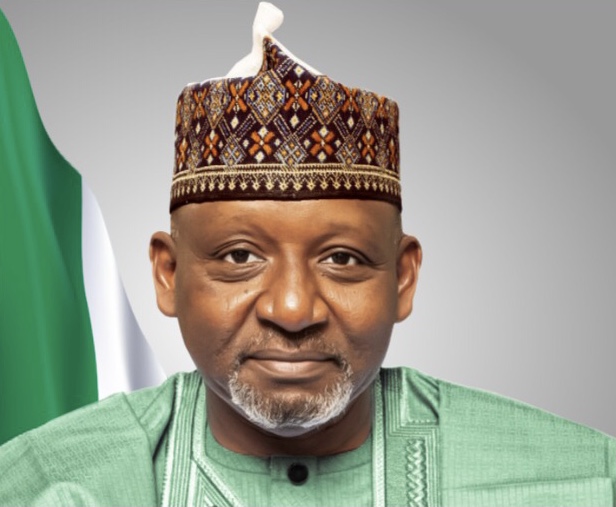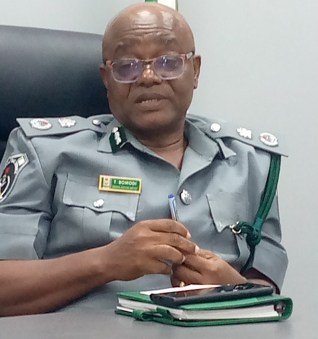Analysis
Holistic Re-tooling of Eastern Ports: Is Sambo Up To The Task?

It is no longer news that management of the Nigerian Ports Authority (NPA) has resolved to resuscitate ports in the eastern axis which covers those in Delta, Rivers and Cross River states, in the bid to raise the ports nation’s capacity optimization, not only as a means of utilizing regional economic blocs, but also aggregating the national net economic growth.
In the expeditious chain of events to develop the right model to achieve this agenda, the Managing Director of NPA, Mohammed Bello-Koko recently met with stakeholders in the eastern ports, where he said management is considering a new incentive package of 30percent tariff relief to encourage port players including terminal operators.
As attractive and beautiful as the proposed blueprint is, it can only amount to anything if the Minister of Transportation, Engr. Muazu Jaji Sambo not only buys into it, but more importantly, if he has the political will to drive the new agenda.
While his predecessor, Rt. Hon. Chibuike Amaechi was believed to have been able get his boss, President Muhammadu Buhari’s ears and consent over critical issues, for Engr. Sambo, it is not so much about his personal conviction about the desirability of retooling the eastern ports that matters, but whether he possess the political clout to be able to secure the necessary presidential approval for the agenda in question.
This concern is germane in the face of worry and speculation that not all the ministers do have equal and unimpeded access to the president, even as he is believed to be more receptive to some than others; a development believed to have affected and even killed some well articulated prime economic blueprints.
While Bello-Koko disclosed at his recent two-day on-the-spot assessment facility tour of ports in the eastern axis, management’s plan to adopt a multi-faceted approach designed to increase cargo vessel call by raising the hitherto 10percent tariff rebate by an additional 20percent, making it a 30percent bumper offer; experts have warned that much more needs to be done to complement the tariff rebate to be able to fully realize the dream and benefits of eastern ports to perform optimally.
Even as he expressed the hope that this latest administrative cost restructuring will not only lead to a rebound in activities for ports in the geo-political area but also greatly serve as booster for players operating within and around the ports; he ended by noting that the proposed restructuring is consistent with the economic agenda of President Muhammadu Buhari’s government.
But analysts and industry observers have outlined few more options. One of them, Capt Iheanacho Ebubeogu who nevertheless applauded the proposed tariff reduction, he expressed worry it is not an end by itself and advised NPA to expand the scope of incentives to cover more operators , and to also consider undertaking rehabilitation of critical assets and platforms like the Escravos Breakwater which he said has been washed away.
A former General Manager Marine & Operations of NPA, Ebubeogu who once headed a sub-committee for the restoration and rejuvenation of the Eastern ports also advised NPA to undertake constant maintenance dredging of channels in the region because of the challenge of siltation.
His words: “Security threats to shipping is not limited to piracy, armed robbery and all that. It goes to all those things that shipping is sensitive to within a shipping-denominated area, including undue community interference in the Government’s right of way, etc.
“If you go to the Escravos now, the breakwater is gone. The breakwater is a stone-like type of arrangement which is done, to keep away the effect of storms carrying sands through waves, to block the channel.”
While Ebubeogu’s concerns align with the thinking of few others, it is noteworthy that what the NPA helmsman has so far given is a general outlook of what management is considering and have as yet announced specifics.
During one of the stakeholders meetings, Bello-Koko said: “We are reviewing their (stakeholders) request for a 30 percent rebate but we need to understand that we don’t just give a rebate without some conditions. We’ll seat down with them, those discussions have started, we’ll give them the conditions based on the tariff relief. It might be lower or higher than 30 percent.”
“We also came to look at the dockyard. The dockyard is necessary and an important part of the port where you dock and service vessels, but you can see it is dilapidated. We are thinking on what to do either to find private investors to invest in the dockyard or the NPA to take up that responsibility, to repair the finger jetty and get the berth to work.
“So we have come to the Eastern ports because we are very serious about the need to increase vessel and cargo traffic. That way, we would be able to decongest the ports in Lagos. On the need to attract importers to the Eastern ports, we have said this so many times, the decision where the cargo will be delivered and evacuated is that of the consignee. The consignee decides the port of discharge for his cargo.
“We are doing all we can to encourage them to bring in their cargo to the Eastern ports. We are working on probably to review the tariffs, properly to give them tariff relief that will trickle down to the importers that will encourage them to bring in their cargo to the Eastern ports.”
Management he said is also looking at the prospect of undertaking further dredging of some of the channels in other to provide a holistic enabling structural environment to fully rejuvenate the axis’ cargo port calls.
“Most of the ports in the East, their problem is the draught of the channel and that is what we are looking at. It is not just to reconstruct the quays, we also need to dredge deeper so that bigger vessels can come in and the economy of scale will set in; and then you will be able to bring in those vessels to berth. We are beginning to see increased activities in Onne and we are happy.”
He has also clearly mapped out the Escravos breakwater in addition to a number of infrastructural decay at the Rivers Ports which has already been fixed, while he is yet to come up with a final paper on what need to be done to rejuvenate the eastern ports.
In the final analysis, whatever decisions taking by management of NPA must not only accord with the thinking and approval of the Honourable Minister of Transportation, but indeed get presidential consent; and the time is short.
This is where Engr. Sambo comes in, as his willingness to cooperate with NPA, and more than that, his ability to also make President Buhari buy into the development plans becomes crucial. But having regards to his leadership credential, the maritime industry has reasons to believe that the minister will deliver.
Recall that during his tour of the Lagos ports and seaport terminals, he said he would do everything within his powers to ensure that the transportation sector is re-kitted to optimize its monetary generation and economic growth to support government task of nation building.
Perhaps what is left is to match his assuring words with actions, a reality no political appointee in this government or the previous one have so far been able to achieve.
It will be recalled that Sambo observed and made quite some heart uplifting during his tour of Lagos ports:
“I personally attach importance to the maritime industry. There are billions of dollars that can be earned from the maritime industry if we get our acts right.
“If we get our acts right, the maritime industry can replace the revenue from the oil industry. This is why we have come to see how we can support the port authorities in order to improve on their deteriorating structures.”
He had frowned at the level of dilapidation of the Tin Can Port quay and assured that the reconstruction would receive priority attention. Part of the assurance is the minister’s in-house knowledge which is the greatest tool required to accomplish set tasks. As a maritime technocrat, clearly evident from his interactions and interventions, one can say with some level of confidence that all things being equal, he will push the eastern ports revival agenda.
While speaking during his inspection tour of the ports in Lagos, he said: “I have advised the management of NPA. In the past, there was what we call Programmed Preventive Maintenance. This is why at every port, we have an engineering outfit headed by the Chief Port Engineer.
“Part of his responsibility is to draw out preventive maintenance programmes for the ports under his jurisdiction every year, take it to the headquarters for consideration and approval, and that forms part of the forthcoming budget.
“If you carry out preventive maintenance, you would avoid a lot of these deterioration that is taking place. This is the truth; the sooner we accept it, the better. ”
Since Sambo does not have all the time in the world, it is not unexpected that he will hit the ground running in this direction.
If the revival of the eastern ports fail despite the elaborate preparation and uncommon commitment the management of the NPA has accorded the plan, it wouldn’t be hard to know where the industry, stakeholders and Nigerians should look at.
Indeed, not just to turn around the potential operational capacity of the eastern ports, but also to resolve other capacity development blueprints such as the CVFF that disappeared from the radar of implementation, supervised by the former transportation minister, Chibuike Amaechi and the Minister of National Planning, Budget and Finance, Mrs. Zainub Ahmed.























